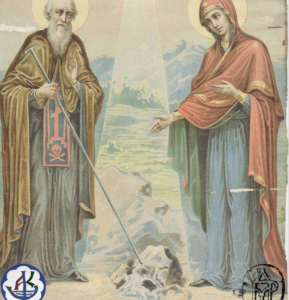Metropolitan Tikhon Shevkunov on the Heart of Sin…
Let’s recall the teaching that the Lord Jesus Christ introduced into people’s lives when he talked about His teaching on eternal life and the soul that abides in eternal life—this is the Sermon on the Mount. The Lord Jesus Christ did not say in that sermon, “Don’t kill, don’t commit adultery, don’t beat or insult anyone.” He was talking about something completely different: “Ye have heard that it was said of them of old time, Thou shalt not kill. But I say to you, do not be angry with your neighbor. There should not be anger in your soul.” He is not talking about a specific sin but about something bigger. Let’s say, a murder that is not justified by anything is a manifestation of extreme anger. The soul in an angry, judgmental, rancorous state will not enter the Kingdom of Heaven; it can’t become a possession of blessed eternity that continually develops and comes to know God. He says, “If you are angry with your brother, go and ask his forgiveness.” Make peace! The whole Sermon on the Mount talks not about concrete sins but about the happiness of those people who were able to form their souls: “Blessed are the meek”. This is not against a specific sin; this is about the state of the human soul—sincerity, meekness, guilelessness. At the same time, a person can be insistent, firm (and he should be that way), but meek and longsuffering with regard to the sins and mistakes of his neighbors. “Blessed are the merciful, for they shall obtain mercy.” This is also a state of the soul. “Blessed are those who hunger and thirst after righteousness, for they shall be filled.” This is also a state of the soul. Happy is the soul in this life and in eternal life that seeks truth, righteousness, justice, and higher knowledge—that is what the Lord talks about. How does this differ from the Old Testament “do not kill, do not steal, do not commit adultery, do not covet? In antiquity they were talking about the crude human sins that we must overcome. Here we are talking about how we should form our souls; what qualities of soul are necessary to a disciple of Christ. This is much higher!
– Homily on the Rich Man

**We are pleased to include writings from modern American Monasteries from time to time as well as our traditional Elders**